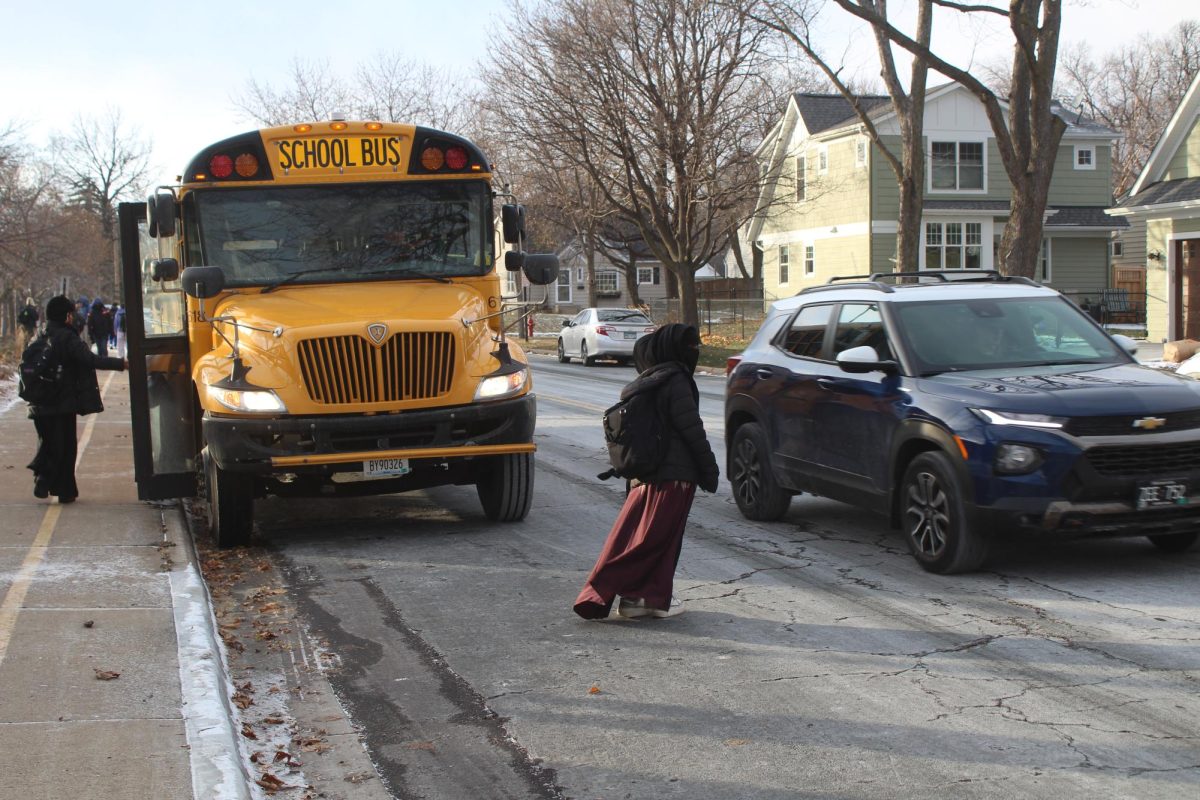After the Supreme Court’s unjustifiable overturning of the 50 year precedent Roe v. Wade, movements and protests have coincided with the ugly results of it. One such result being women having to think about another factor on top of the already stressful college process: abortion access.
Ever since June 2022, women’s rights to their bodily autonomy have been put back on the table for states to pick and choose from. As states have gone through this process, three distinct types of states have emerged: states who have codified abortion rights: New York, Minnesota, California. States who have remained somewhat neutral, not codifying nor restricting women’s bodily autonomy fully: Wisconsin, Wyoming, Montana. States that have actively restricted or banned women’s right to choose: Texas, Tennessee, West Virginia, it is these types of states, these most-restricted states, that have changed the college decision process for women.
In a 2023 survey, Gallup found 73% of adults aged 18 to 24 who are unenrolled said reproductive health laws are somewhat important to their decision to enroll in a college. In one anecdotal piece of evidence NBC News did a story on this issue, with part of it being an interview with a girl who was applying for college. The girl (who kept her last name anonymous due to not wanting to be targeted in the college process for her opinions) said “I’m not comfortable being in a state that does not value who I am, or value my rights as a person.” This notion, not being valued, is something that in a post Roe overturning world women are experiencing on mass.
Students searching for colleges aren’t the only ones affected. According to an Intelligent poll the summer after Roe was overturned, 45% of students currently enrolled in colleges were considering transferring to a college in a state more favorable to abortion. Also, 20% of students at colleges where abortion was illegal or at risk of becoming illegal, said they “definitely” planned to transfer. In that same poll another peculiar finding was shared: four in ten students who identify as “pro-life” want to access abortion care for themselves.
Going back to the college decision process, people of color have a particular disadvantage compared to their white peers. According to a BestColleges Survey which surveyed prospective and current college students. Prospective undergraduates who identify as people of color were more likely than their white peers to say the court’s decision will impact their decision to attend college in a specific state, a contrast of 43% to 34%. The study also reaffirmed the aforementioned Gallup poll, saying 59%, more than half of the current/prospective students, said they were opposed to the overturning of Roe. And more than two-thirds, 69%, said they supported a woman’s right to choose. Fewer than 16% insinuated that they do not support a woman’s right to choose. Men are slow to reconcile with the fact that the power they hold has actively caused damage to women’s lives. So therefore It is no surprise that it also revealed women were more likely than men to oppose the court’s decision, with 67% vs 48%.
The BestCollege survey was conducted in 2022, so when asked about elections it was referencing the 2022 midterms. Specifically, when people were asked if it would have an impact on their voting, 59% said the overturning of Roe would have an impact in their vote. Overall, 68% of those who opposed the overturning of Roe said it would impact their vote compared to 50% of those who said they did not oppose it. And this reality showed itself with the lackluster “red-wave” that was supposed to occur during the midterms. Which can single handedly be attributed to the unjustifiable overturning of Roe.
When it comes to voting, abortion is predicted to play a large role. Especially when it comes to two of the most aggravated voter groups right now: women and youth. Both who came out in large numbers during the midterms. The failure of the Biden administration to act for both of these groups has swayed their opinions against him. With regards to women, in Michigan, a swing state that overwhelmingly came out in support of Biden in the 2020 election, Biden is having a hard time holding down the front with women. Although Biden leads very slightly among women compared to Trump, 43% to 42%. Nikki Haley leads Biden among women votes 46% to 36%. All of this is in contrast to the 57% female support that Biden had in 2020 in Michigan according to the exit polls conducted at the time.
With regards to youth, Biden is losing miserably. They aren’t simply disapproving of his leadership, they are actively switching sides. When looking at 2020 polling Biden was at 51% support from youth compared to 47% for Trump, a margin that made a decisive difference in the election. Nowadays poll after poll comes out showing losing support for Biden amongst youth, with each one getting progressively worse than the last. When the college process starts for future classes, such as kids at Park, two things are evident. One: unfortunately another layer has been added to the already stressful process, and two: women in the U.S have to once again bear the brunt of patriarchal decisions in their day to day lives. This reality is especially uncomfortable considering the fact that 58% of total undergraduate enrollment are women, while men make up 42 percent. As Roe’s unjustifiable overturning still sends shockwaves through daily American life, college is just one sector affected. As the college process continually gets harder, women unfortunately, are having to adapt to it quicker and more thoroughly than men, unfortunately due to men.









